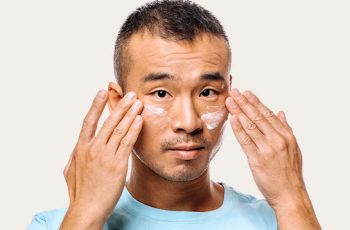
Is Laser Hair Removal Permanent? Here’s What Dermatologists Say
If you love the way your hair looks and feels after you remove it, but hate the actual process and wish it wouldn’t grow back so quickly, it might be time to consider laser hair removal. This very common cosmetic procedure uses lasers (i.e., concentrated beams of light) to damage hair follicles, reducing the growth of hair on your body and face. One of the best things about laser hair removal is that it can last a long time—even nearly permanently—when done correctly.
To get the most out of laser hair removal, you’ll need to follow your dermatologist’s instructions and make sure you get a few initial treatments. However, a few other factors can also play a role in your results. Here’s what you need to know about permanent (or nearly permanent) laser hair removal, straight from board-certified dermatologists Michele Green, MD, Hadley King, MD, and Corey L. Hartman, MD.
Read on to learn how long laser hair removal lasts and how to make your results last.
Meet the Experts
Michele Green, MD, is a board-certified cosmetic dermatologist in New York City.
Hadley King, MD, is a board-certified dermatologist in New York City.
Corey L. Hartman, MD, is a board-certified dermatologist in Birmingham, Alabama.
What is laser hair removal?
Laser hair removal uses lasers to reduce and remove body hair. Your dermatologist will use a specific wavelength of laser light to attack the pigment (also known as melanin) in the hair follicles. “The light energy absorbed by the melanin is converted into heat, which destroys the follicle,” Green explains.
According to our experts, hair follicles in the growth phase are destroyed when they absorb the laser energy, but follicles in the resting or catagen phase and the surrounding skin are not affected by the laser. To remove the hairs that were inactive from the last session (as well as any hairs that were removed in the last session that are now active), you’ll need several sessions, spaced 1-2 days apart, depending on your dermatologist’s recommendations.
Benefits
Hartman tells us that laser hair removal is considered the gold standard for more permanent reduction of unwanted hair. He says the treatment has many benefits, including:
Removes or reduces unwanted hair
Reduces the time and cost of other, less permanent hair removal options, such as waxing
Relieves skin problems associated with hair growth, such as folliculitis and discoloration
Makes skin smooth and even
Prevents and removes ingrown hairs
How long does laser hair removal last?
While the results of laser hair removal can be long-lasting, they are generally not permanent. Instead, you need about five or more treatments for long-term or even permanent hair removal. “After five or six full treatments, most patients are hair-free for years,” Hartman says.
Hair most often grows on the face, especially the chin and neck. “This is more common in women going through menopause because when estrogen levels drop, testosterone levels rise, which leads to more hair production,” Hartman says.
Hair on the body may also grow back, most likely on the arms, legs, chest and abdomen. When hair grows back, it is usually sparser and finer than before treatment. However, the longevity of laser hair removal can vary from person to person.
What factors affect how long the results last?
King tells us that some hair will naturally grow back over time, so one to two maintenance treatments per year are recommended. But in addition to natural and expected hair growth, there are a few factors that can make hair grow back faster:
Hormones
“Hormonal changes can affect hair regrowth after laser hair removal,” Green says. This can affect people in a variety of situations. For example, women who become pregnant after laser hair removal may need follow-up treatments after the birth of their child, while people with polycystic ovary syndrome (PCOS) may experience a sudden growth of facial hair, Green says.
This can also affect people who take hormonal birth control pills. Some people can switch birth control pills without experiencing any major effects, but for others, major hormonal changes may cause hair to grow back again.
Skin and hair color
Laser hair removal targets melanin, so the treatment is generally best for people with light skin and dark hair. “This is the ideal setup that allows the device to target the hair without damaging the skin,” King says. “Dark skin increases the risk of burning, and light hair reduces the effectiveness.”
“Laser hair removal works best for people with light skin and dark hair because the contrast between hair and skin is strong and the laser can easily target the hair on the skin,” Green says. “That doesn’t mean laser hair removal doesn’t work for other skin tones and hair colors, as advances in laser technology have made it possible for dark skin and light hair to work.”
Condition of the hair follicles
Research shows that if the hair follicle is damaged during laser hair removal, the effects may be permanent. 1 If the follicle is damaged but not destroyed, it can recover and the hair can eventually grow back. In this case, when the hair grows back, it will usually be lighter and finer than before.
Is there any way to prolong the effects of laser hair removal?
If you do want your laser hair removal results to last, be sure to follow your dermatologist’s instructions and make sure you come back for the recommended number of treatments. Here are some other things you can do to get the most out of each treatment (courtesy of Hartman):
Let your hair grow at least half an inch before each treatment. This means you must avoid any form of hair removal for about four to six weeks before your laser hair removal treatment.
Do not use any products that may damage the skin barrier within one week of treatment. This includes peels and other products with exfoliating ingredients such as alpha hydroxy acids and retinoids.
Use sunscreen daily and be especially careful about using and reapplying sunscreen one month before treatment.
On the day of your appointment, you should be clean and not use skin care products such as sunscreen, oils, lotions, and deodorants. These products may create a barrier between the laser and your body hair.
Final Conclusion
Laser hair removal is a popular treatment that targets the melanin in the hair and follicles, which over time can damage the follicles and reduce growth. While the procedure is effective in reducing the appearance of hair, the results are generally not permanent. For best results, you will most likely need to return for about five or more initial treatments and about once a year for maintenance treatments. In order for the effects of laser hair removal to last a long time, it is important that you follow your dermatologist’s instructions. Be sure to perform the recommended number of treatments and follow pre-treatment care recommendations. For example, do not use skin care products during your appointment and avoid peeling for at least one week before your laser treatment.


